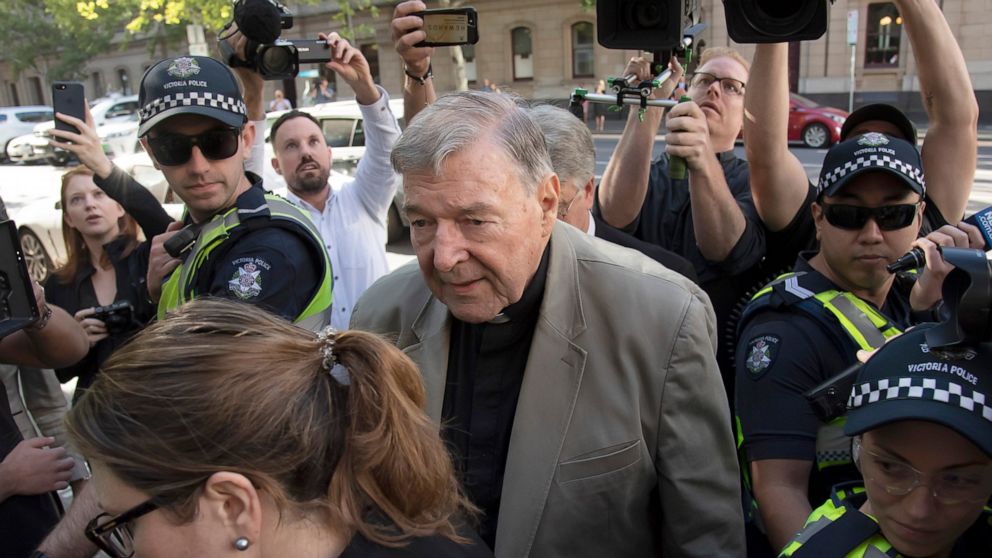Australian media on trial for breaching order in Pell case
High-profile Australian journalists and large media organizations have gone on trial on charges that they breached a gag order on reporting about Cardinal George Pell’s sex abuse convictions in 2018 that have since been overturned
CANBERRA, Australia — High-profile Australian journalists and large media organizations went on trial on Monday on charges that they breached a gag order on reporting about Cardinal George Pell’s sex abuse convictions in 2018 that have since been overturned.
A total of 18 individual journalists, editors and broadcasters face potential prison sentences and 12 organizations face fines if they are found guilty in the Victoria state Supreme Court of breaching a judge’s suppression order on Pell’s case. They have all pleaded not guilty.
Justice John Dixon is hearing the trial without a jury and via video links due to pandemic restrictions. The trial is expected to take two to three weeks.
Such suppression orders are common in the Australian and British judicial systems. But the enormous international interest in an Australian criminal trial with global ramifications highlighted the difficulty in enforcing such orders in the digital age.
Pell was convicted on Dec. 11, 2018, of sexually abusing two choirboys in a Melbourne cathedral when he the city’s archbishop in the late 1990s.
The trial of Pope Francis’ former finance minister and the most senior Catholic to be charged with child sex abuse had not been reported in the news media because of a suppression order that forbid publication of details in any format that could be accessed from Australia.
Details were suppressed to prevent prejudicing jurors in a second child abuse trial that Pell was to face three months later.
That second trial was cancelled due to a lack of evidence and Australia’s High Court in April overturned all convictions after Pell had spent 13 months in prison.
In opening her case, prosecutor Lisa De Ferrari told the judge that the morning after Pell’s convictions, Australians could read about it on overseas websites, with U.S.-based The Daily Beast among the first to break the news.
No foreign news organization has been charged with breaching the suppression order. The U.S. Constitution’s First Amendment would prevent such censorship in the United States, so attempting to extradite an American for breaching an Australian suppression order would be futile.
Melbourne’s most popular newspaper, Herald Sun, published a white headline “CENSORED” across a black front page.
“The world is reading a very important story that is relevant to Victorians,” the newspaper said, referring to residents of Victoria state.
The newspaper said it was prevented from “publishing details of this significant news.”
“But trust us, it’s a story you deserve to read,” the newspaper said.
An online story that referenced overseas reporting led to the newspaper’s owner and staff being charged.
“A high-profile Australian known across the world has been convicted of a serious crime but the details cannot be published in any media in the country,” the online report began, under a headline: “The story we can’t report.”
The media defendants have not said what their defense is to be in the court case. De Ferrari said some of the individuals charged had said they were not aware that a suppression order existed.
The trial is continuing.
![]()


